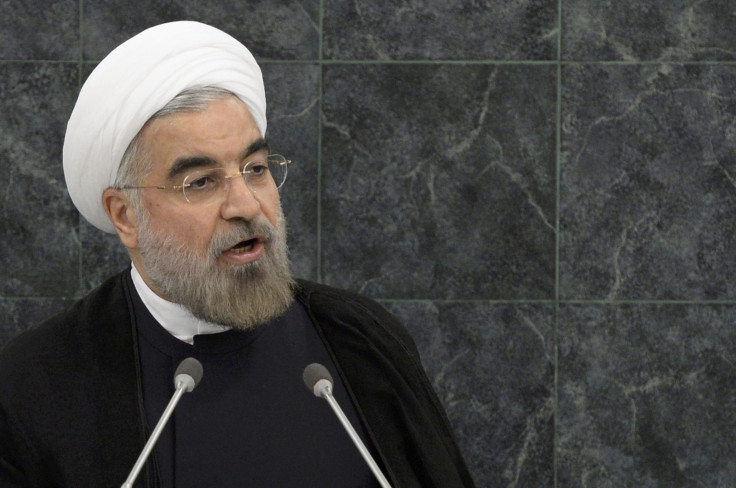The Iranian Nuclear Deal: A Foreign Policy ‘Hail Mary’

The deal with Iran to roll back its nuclear program in exchange for sanctions relief is like a fourth quarter ‘Hail Mary’ pass from American football – an entertaining, high-risk play but with little chance of success.
With three years in power remaining, the administration of President Barack Obama is in a deep hole and needs to put some points on the board. Its putative foreign policy successes – like the withdrawal of U.S. troops from Iraq and Afghanistan -- have proven hollow. Iraq is gripped by political stagnation and a level of violence greater than at any time since the height of sectarian violence of 2007. Afghanistan’s government refuses to sign a deal that will allow U.S. forces to remain in an advisory capacity beyond 2014, paving the way for a resurgent Taliban to make a devastating come-back.
Also, Russia has outflanked us in Syria: Putin’s support, ably abetted by the regime in Iran, is the principal reason that President Bashar al Assad remains in power. America’s relations with Israel are arguably at their lowest point since the founding of the Jewish state in 1948. In addition, we have alienated our staunchest Arab allies – Egypt, Saudi Arabia, the United Arab Emirates and Bahrain –and they are taking unprecedented steps to distance themselves from the United States, their erstwhile strategic partner of choice.
This is why the Obama administration is investing so much political capital in its quixotic pursuit of a grand bargain with Iran. A comprehensive agreement would represent a real game-changer for the United States and the region. It would save us from having to take military action to roll back their nuclear program -- a very real option and one that most reasonable analysts assess would prove tragically costly to our long-term interests. The global sanctions regime that we have so skillfully put in place over the past decade will be increasingly difficult to sustain over the long term. It’s a far better bet to leverage our present advantage and cut a good deal now, rather than to lead a doomed effort to prevent a gradual disintegration of the stranglehold we currently enjoy over Iran’s economy. One of the principal reasons the U.S. took military action against Iraqi dictator Saddam Hussein in 2003 was because we were convinced that he was on the verge of breaking out of the sanctions box we had put him in.
This diplomacy is unfortunately based more on wishful thinking than hard reality. Iran is not acting in good faith. It has no intention of giving up its nuclear weapons program. Possessing a nuclear weapons capability is an issue of national pride and one which the Iranian public strongly supports. The Middle East is a dangerous neighborhood: Iran has no shortage of enemies and Iranians believe a credible nuclear deterrent is vital to national survival. Although the clerical regime led by Supreme Leader Ayatollah Ali Kahmenei is increasingly unpopular – as evidenced by the government’s continuing ruthless suppression of internal dissent -- dismantling Iran’s nuclear weapons program would be a death blow to its legitimacy as the defender of Persian exceptionalism. It is a step that Iran’s rulers cannot and will not take.
And make no mistake: despite his Twitter-savvy charm, Iranian President Hassan Rouhani is not a revolutionary intent on undermining the legitimacy of the Iran’s ruling religious elite. In fact, as an ayatollah himself, he is a member of that exclusive club and his survival is inextricably tied to theirs.
So where does that leave us? America is right to put Iran’s stated intention to disarm to the test. Paradoxically, providing the regime an opportunity to fail is the surest way to undermine it. Let the world see that despite its seductive charm offensive, Iran’s fundamental interests have not changed and a resolute, unified stance by the international community is our best protection. As the Obama Administration’s former Deputy National Security Advisor recently wrote, “…if diplomacy fails, the United States will be far more credible in reinforcing sanctions or using force -- or both -- if it puts a proposal on the table that the rest of the international community will find serious and plausible.”
Adam Ereli is a former deputy spokesman of the State Department. He was U.S. Ambassador to Bahrain from 2007-2011.
© Copyright IBTimes 2024. All rights reserved.





















